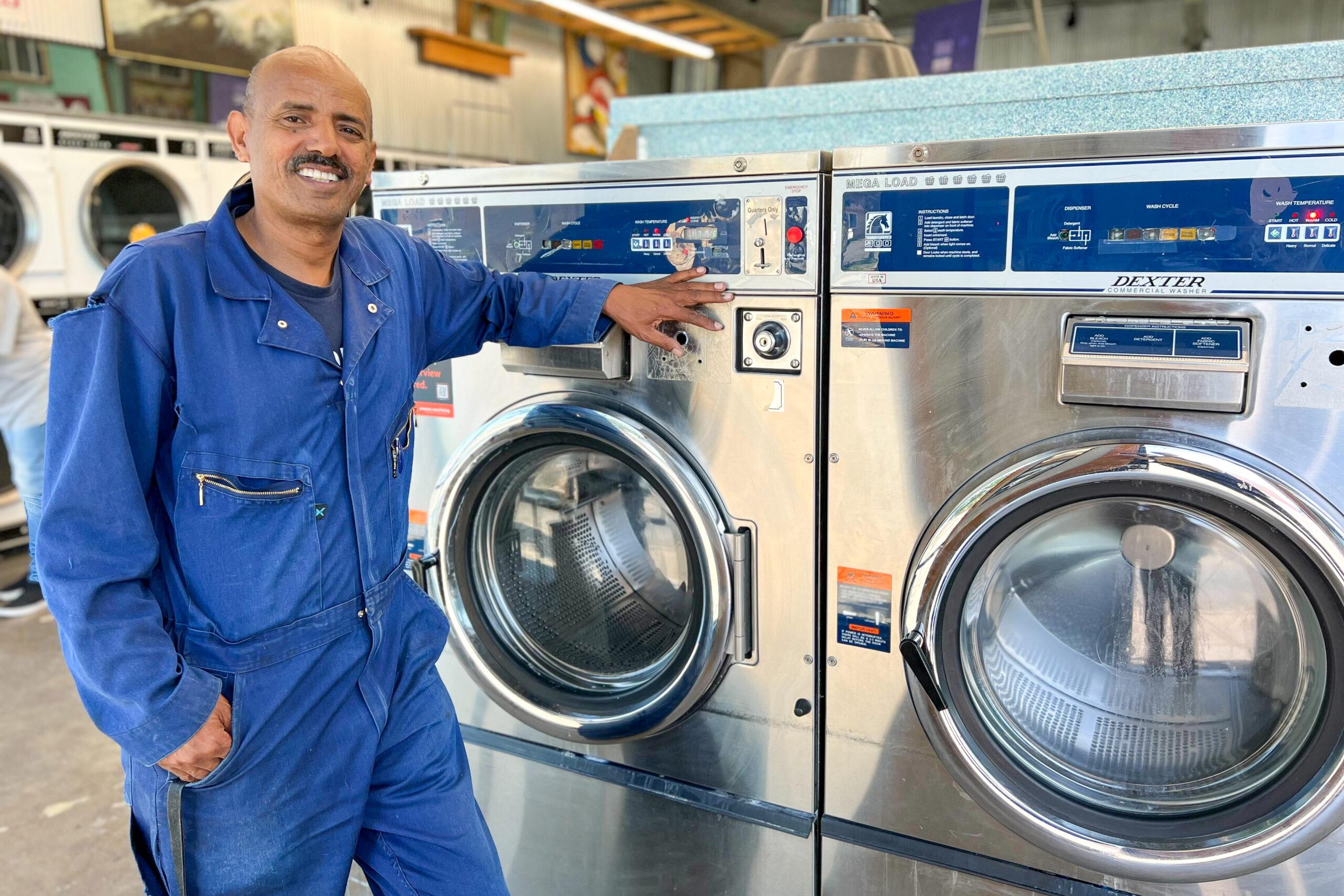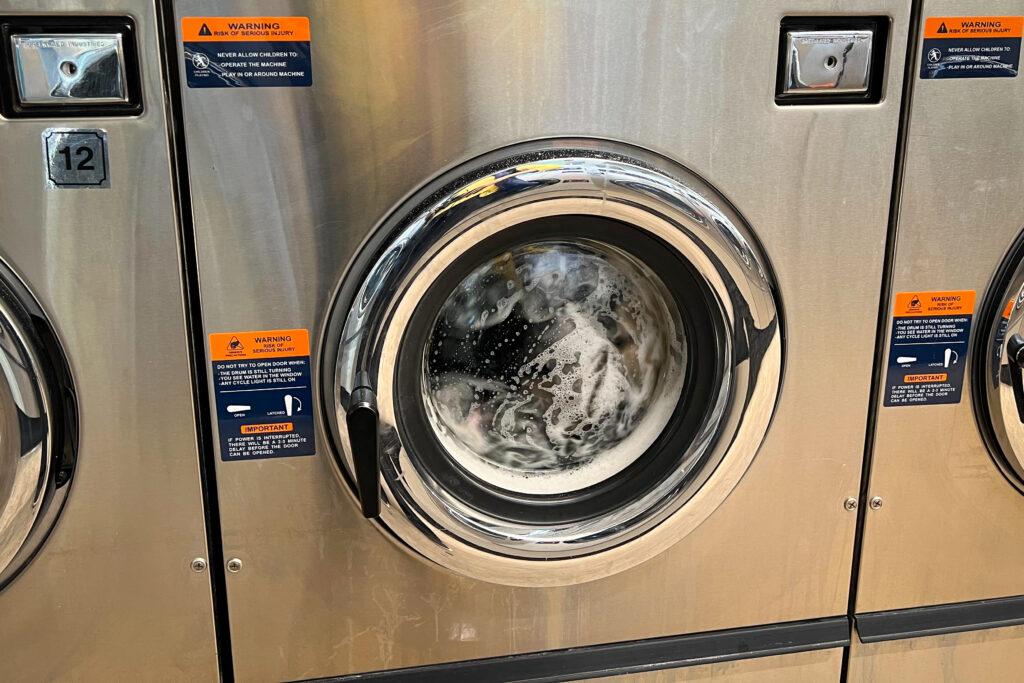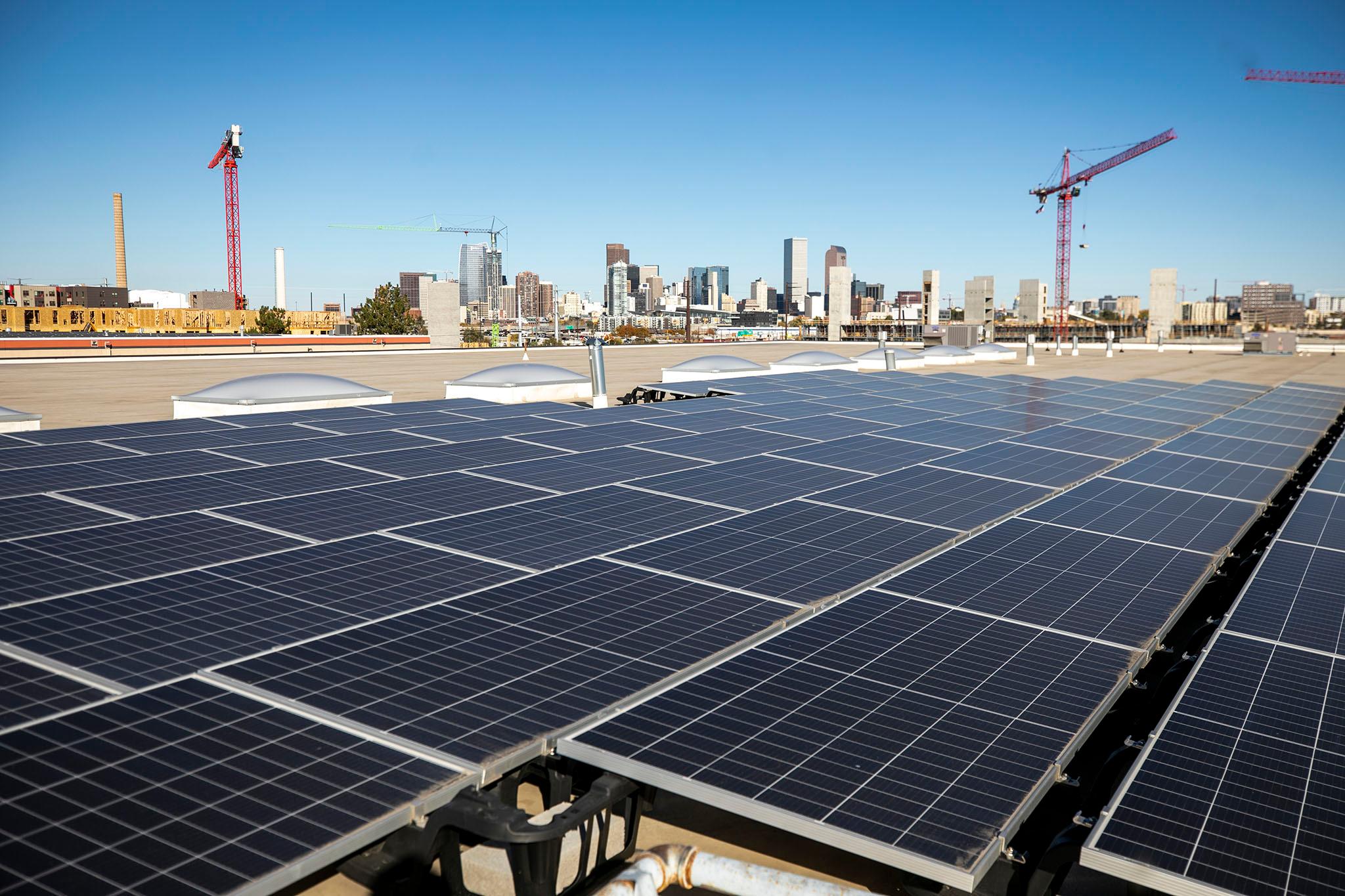
Long before Yemane Habtezgi moved to Aurora — a city that has long struggled to secure enough water for its steadily growing population — he knew the value of water.
Habtezgi grew up in Eritrea, in the capital city of Asmara. He had running water, but he saw people in villages in the East African nation who frequently had to carry water several miles.
“They carry the water or they use donkeys to bring water to their homes from the river,” Habtezgi said.
Habtezgi moved to the Denver area around 2000, and in 2010, he bought a defunct laundromat on Colfax Avenue in Aurora so he could be his own boss and have the flexibility to take care of his children. He opened Laundry on the Fax and started renovating the building according to his values of water and energy conservation.
“If I can save water, I save life,” he said.
The renovation included putting in a wall of windows facing the street to bring in natural light. Habtezgi replaced old fluorescent bulbs with long LED lights. Shortly after he took over the location, he got rid of dozens of top-loading washing machines and replaced them with front-loaders that used about half as much water.
That’s when his troubles started.
Customers were very unhappy with the change. The most common complaint Habtezgi heard was that they couldn’t see water swishing around anymore, so they weren’t convinced that their clothes were actually getting cleaned. Habtezgi said many customers stopped coming.
“We tried to save water, but we lost our business almost,” Habtezgi said.
Concerns about the environment don’t always turn into sustainable action
The pushback to more sustainable cleaning methods installed at Laundry on the Fax — and sustainable consumerism overall — is common. Researchers say conservation often challenges our ingrained beliefs. In order for Habtezgi to keep his business open, he had to figure out how to be true to his values and satisfy the customers at the same time.
In a recent Conservation in the West Poll, half of Westerners say water supplies are a major crisis. Nearly 40 of respondents say it’s not quite a crisis but still “a significant problem.” But by and large, people in Western states have not changed their behavior to match those concerns. The region is still covered with thirsty green grass, and there is little financial incentive to save water.
“We regard water as basically inexpensive, if not free, and something that we should have unlimited access to,” said Leaf Van Boven, a professor of psychology and neuroscience at CU Boulder who studies environmental decision-making.
Van Boven said consumers regularly make small decisions to save water — like turning off the faucet while they brush their teeth — but do not make choices that save much larger quantities.
“Taking a shorter shower does a little bit,” Van Boven said, while letting your lawn go brown would save a lot more. “But we're much more likely to take a shorter shower than let our lawn go brown.”
In that way, people’s behavior with water parallels the ways they behave with sustainability broadly.
“The most environmentally friendly, sustainable behavior that we could engage in as consumers is to just consume less,” Van Boven said, “because there's really no way to produce things that we consume without having some kind of environmental impact.”
Yet, people are more likely to choose a product labeled environmentally friendly than to forgo a purchase altogether.
“It is much more challenging for us to think about just not consuming in the first place,” he said.
Further challenging environmentally minded entrepreneurs like Habtezgi: When people do choose sustainable products, they often do so believing that the products won’t be as effective or durable. Consumers associate ethical products with gentleness, according to research led by Michael Luchs, a consumer behavior researcher and professor at William & Mary.
“People tend to think that when products are good for the environment, especially cleaning products, that they're less effective,” Van Boven said.
That’s true even when their efficacy is proven to be equal.
Front-loading washers are by far the most efficient option, but can they overcome human psychology?
When customers left Laundry on the Fax after the change to more efficient washing machines, Habtezgi had no choice but to get rid of the new front-loaders he had bought. He sold them at a loss of about $50,000.
But Habtezgi was able to find a solution. He bought dozens of new commercial washers from Dexter, an Iowa company that manufactures specialized commercial laundry equipment. Like the machines he got rid of, the new ones are front-loaders, which save water and energy compared to the old top-loaders.
The EPA says front-loading washers are by far the most water– and energy-efficient option for homes or businesses.

The new Dexter machines have several key differences from the models they replaced. The new washers are bigger, which means customers can wash more clothes in a single load, saving even more water. Habtezgi encourages people who have washers at home to consider taking bulky things like blankets or dog beds to a laundromat like his so they can wash more of them in fewer loads, using less water overall.
“It is a part of business. You have to listen to the customers,” he said. “They taught me a good lesson.”
As technology improves, better cleaning is possible with less water. Laundry on the Fax’s new washers have another crucial feature that Habtezgi says customers have really responded to: large glass windows on the doors that allow you to see clothes swishing around.
“When they see the water, they feel very comfortable,” Habtezgi said.









